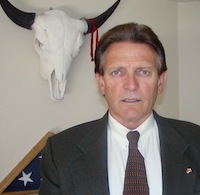Blog
Holding Your Representatives Accountable: “Vetting Principled Candidates”
September 11, 2013
 We’re excited to share these tips from friend of American Majority Marty Hiles, a local political expert from Waxahachie, Texas.
We’re excited to share these tips from friend of American Majority Marty Hiles, a local political expert from Waxahachie, Texas.
We, conservatives, have become a suspicious group, and with just cause I may add. We have been fooled time and time again by candidates who tell us one thing while campaigning and then do the exact opposite after being elected. It appears that much of the problem lies in the candidate vetting process.
Vetting means to thoroughly evaluate, which includes significant examination into the background of the candidate to analyze falsehoods the candidate might claim, and to evaluate the potential problems in the past history of the candidate that could be a liability in attempting to win political office.
Who is responsible for doing this?
All too often we have relied upon the media to do it. However, the media has a woeful record of failing to reveal a candidate’s true positions or background history especially regarding liberal progressives. It generally fails to challenge or follow-up on answers from candidates that are non-responsive to the question being asked or hopelessly vague. Of course this rule does not always apply to conservatives. In addition, the media, on most occasions, fails to do its homework and, therefore, is incapable of asking for details that would lead to further clarification. It would rather accept generalizations and move on to another topic. For instance, if a candidate declares himself to be a fiscal conservative the interviewer should know his voting record and immediately point out that his voting record either substantiates his claim or it doesn’t.
The vetting process by its very nature is detailed. The vetting team should note that one isolated fact does not make the case but it is the accumulation of evidence or as they say in court, the preponderance of the evidence, that makes the case. The point is that all candidates need to be honest and clarify who they are and what they truly stand for if they expect people to vote for them.
Candidate Personal Evaluation
The candidate should first evaluate and answer the following questions about their personal and professional qualifications prior to deciding to run for an office:
- What can I contribute?
- How can I do the job better?
- Why do I want to do this?
- How much time can I give to the campaign?
- How much time can I give to the job?
- What will I get from it?
- What will I have to give up?
- What does my family think?
- Will I be hurt and angry at rejection?
- Can my family and I, my business and/or partners, my work, etc., handle the pressure of the campaign?
Strategy Criteria
- Core Competencies – Does the candidate have the professional training and experience sufficient to equip them to perform the duties of this office competently?
- Character – Does the candidate have a track record of integrity that gives confidence they will perform the job ethically?
- Philosophy – Does the candidates’ political ideology give confidence they will lead the office in a fiscally conservative manner?
- Electability – Does the candidate have the self-possessed confidence and moxie and campaign organization to actually win the office they are seeking?
This is an excerpt from “Vetting Principled Candidates.” Read the rest of the piece here.
Marty Hiles has been a consultant & strategist for presidential, congressional, state, county & City officials & candidates, 1975-2013. Former national legislative writer & lobbyist on economic development & small business projects & issues for veterans. Former national leader in the Vietnam Veterans Movement. Appointed delegate to the White House Conference on Small Business 1995.CEO American Veterans Chamber of Commerce 1995-97, Brought into existence and chairman of the SBA Veterans Business Resources Councils, San Diego 1995 & Dallas 1981.Chairman and/or Board member of numerous non-profit corporations. Radio Talk Show host on World Talk Radio 2002-04. Reporter, writer, speaker. Former U.S. Marine, infantry combat in Vietnam 1968-1970. Presently, CEO, American Indian Humanitarian Foundation.
